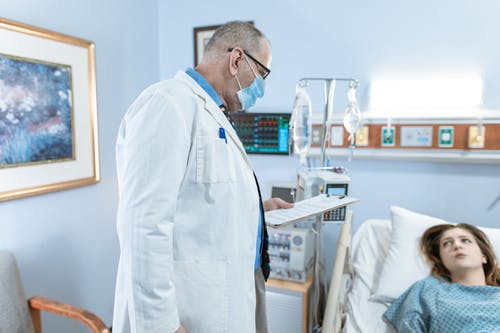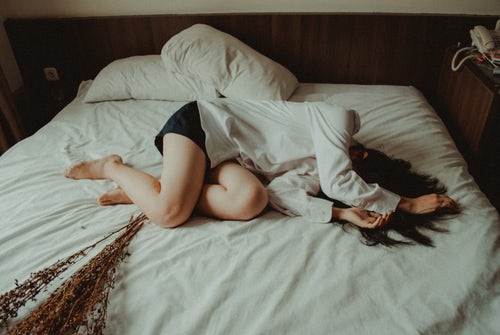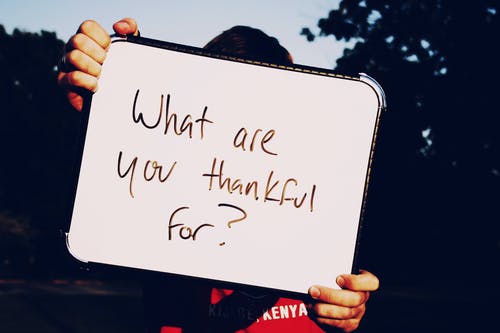For the past couple of years, I’ve been a part of a recovered speaker program with Eating Disorders Queensland (EDQ). EDQ is an incredible not for profit organisation that supports those in recovery from eating disorders and their families.
In a nutshell my role as one of their lived experience speakers involves speaking at different locations to varied audiences and participants about my experience with recovering from an eating disorder.
One place I often speak at is support groups for people currently in recovery from eating disorders.
Being involved in these groups means so much to me because in my own recovery one of the most profound moments for me was going to a recovery support group. It was profound for many reasons but one of the main ones being up until that point I’d never met anyone who’d recovered from an eating disorder.
I’d never really met other people living with eating disorders.
I always felt like what was wrong with me was to do with something broken within me and only me.
I always believed I was different.
That group blew that theory out of the water and initiated the treatment (clinical hypnotherapy) that I couldn’t have known at the time would go on to lead to my full recovery.
Anyway, to get back on track there are some reoccurring themes to the questions people ask at these groups, so I thought for this week’s blog I’d share 3 of them.
If you haven’t been to a recovery group or met anyone who’s fully recovered from an eating disorder, I hope this blog answers some of the questions you may have and even if you have been to a recovery support group, I hope these answers elaborate on your understanding or increase your clarity around certain questions. Who knows with any luck maybe I’ll even answer questions you never knew you had!
Beginning with…
- Do You Have Regrets Because of Your Eating Disorder?

Yes.
Interestingly, if you’d asked me this question just a coupe of years ago my answer would likely have been no.
Maybe because I was just so damn grateful to have recovered and to have freedom over my life that to say I had regrets felt ungrateful and implied I wasn’t happy or content to be where I was or that I wished things were different, and I was happy to be where I was, and I didn’t wish things were different!
But if I am to be absolutely transparent I do regret some of the choices I made due to the eating disorder.
I also regret some of the choices I didn’t make due to the eating disorder because one of the greatest life lessons I’ve learnt is that by not making a decision you are making a decision. Not making a decision just means time or other people make the decision for you.
Decisions I know if I had that time over, I’d have chosen differently.
Decisions I know if I had that time over, I’d have chosen quickly and easily.
I know some of those choices impact my life today and will for the rest of my life.
I also know the reason why I made or didn’t make those decisions and it was because I didn’t know myself. Therefore, I also know just having that time over wouldn’t have changed this. The only thing that would have had the capacity to change this was my learning to know myself (which didn’t come until many years later with clinical hypnotherapy).
I think the real question people are asking when they ask if I have regrets about the years I lived with anorexia nervosa is “is recovery worth it?”
Is recovery worth it when you’re recovering into a life that is less than it “should” be?
Is recovery worth it when maybe you’re recovering into a life where it feels as though you have nothing?
And the answer to that is always yes.
Had I not fallen ill all those years ago I’d have made different choices.
My life would have been different.
Do I for a moment regret recovering into a life that was less than what it may have been had I never fallen sick? No.
Not only is it the truth that I will never know the alternative and there is always the potential that while it’s easy to see how it would have been better it could also have been a “worse” road. And yet even given everything the illness took away from me, to have stayed in it would have been infinitely worse than starting life from scratch (which is what recovery felt like).
Recovery takes a self-honesty second to none.
Recovery takes looking at yourself and deciding if you’re willing to step away from all you’ve ever known, from what feels like everything that’s ever made you feel safe or ok.
Recovery takes casting off from the shore without any guarantee you will ever see land again.
That’s a big ask.
When it comes to regret I have to mention that I have far less a sense of regret now that I am fully recovered than I did when I was in the eating disorder.
When I was in the eating disorder it felt like if I “gave up” on the eating disorder now I’d have dedicated 15 years of my life to what? Nothing.
It felt like I was giving up on an important project.
A project I was really good at.
When I was in the eating disorder, I was terrified that if I was mentally well and didn’t have the eating disorder to “depend” upon (hide within/consuming me) I would be incapable of dealing with the regret of all I’d missed out on, all I wasn’t, all the years the eating disorder had stolen from me. I felt all that was true and rather than motivate me as you’d think it would it made me cling harder to the eating disorder (comfort? familiarity? the most all-consuming distraction you can imagine?…)
The truth is I can regret all that and still in the same breath be infinitely grateful for all that I did experience, all that I am and this chance at a recovered life, this chance at a life.
That is one of the many paradoxes of being human. More than one thing can be true at once.
Perhaps a better word for my experience of “regret” would now be acceptance.
I am not trying to be anything I am not.
I no longer tell myself I “should” be able to do this or that or should be beyond where I am, and I instead enjoy the not knowing.
As cliché as it sounds, I enjoy the process.
I look at life with a whole lot of non-judgemental filled curiosity and this allows me to learn, succeed and fail in ways that are far less than perfect, but which are genuine and authentic and the gratitude I have for this far outweighs any regret I have over what could have been.
I don’t think it is possible for someone to recover from an eating disorder and regret it. No matter how long you’ve been sick, no matter who or what you lost in order to choose you. Recovery will always and in every circumstance be worth it. As I said it does take the honesty of the pain of what could have been but get help to get through that because staying in the eating disorder will not give you that time and those choices back any more than recovery will.
2. Was There a Turning Point to Your Recovery?

People always ask this one.
If recovery were a movie, I imagine there would be a wakeup call moment that motivated the actor/actress to a swift upwards trajectory culminating in a perfect breakthrough into recovered. It would likely be summarised in a neat 30 second montage consisting of some tears, defiance, and much pride in oneself.
But recovery is not a movie.
I remember a steady underlying sense that I was waiting for the right moment, the “sick enough” moment where it would all just click. I’d get it and I’d recover.
That moment never came.
Or rather it came many times…
The truth is there were so many moments of epiphanies, insights, deeper understandings, and motivation to change I couldn’t possibly list them all (in fact that could be a whole blog for another day).
Looking back now I can see them for what they were, desperation.
Desperation coupled with a belief that willpower and determination were the answer to beating the eating disorder.
The “wake up moments” of sheer heartbreak and pain created a resolve within me to “do better” and “try harder.”
The motivation came many times and it never left. But the energy and the effort to continue to pour my heart and soul into what felt inherently wrong was finite.
In the end the illness was always there; always stronger.
Having said this there were some legitimate turning points to my recovery, but they weren’t because I chose them and decided that this was the wakeup call, I needed. They weren’t the moments I hit “rock bottom”. They were turning points because they were moments where I realised that things had changed. They were turning points because they were tiny moments where I realised, I’d made a choice that genuinely came from me. Maybe I found myself eating something while I was home alone, maybe I found myself choosing the larger plate or having seconds.
The first time I felt the sense that perhaps there was a possibility that I had any control over my life was one of the very first sessions I had with a clinical hypnotherapist.
I don’t remember what we did in that session, but I know as with many of the sessions that followed it allowed me the ability to step outside of my experience.
A moment to see my “problems” objectively, non-judgementally and without the shame and guilt.
A moment to be human.
A moment to imagine other ways of being which I’d not previously truly thought possible.
Don’t wait for the turning point to come.
It’s likely it won’t or it’s more likely you’ve had some?…
If “sick enough” and “rock bottom” were going to get you to recovered you’d be there.
It’s likely you’ve had some rough moments.
You’ve been to rock bottom.
You’ve been to sick enough.
And it’s likely if you’re reading this that they weren’t the motivation to change you’re chasing?… at least not in any long-term sustainable way which is, honestly all I’m interested in.
I’m not particularly interested in your ability to bully yourself into eating the burger or going to the birthday once.
I’m interested in your ability to be the person who doesn’t need to bully themselves into doing anything because they naturally and easily behave in ways that support their health and happiness.
3. How Did You Deal with Digestive Issues?

When I was asked this question at a support group last week my answer was “badly”.
And that was the understatement of the century.
I dealt with the myriad of digestive issues that go along with recovery terribly.
I despised the sight of food, food near me, the feeling of food in my mouth and especially the feeling of food in my belly.
Many times, before I had a 10th of the information I have today about what was going the bloating, constipation, diarrhoea, reflux, nausea, mild pain and debilitating pain made me back down out of fear I was doing something wrong.
Any information I did have on what to do for these symptoms revolved around cutting out foods, eating less, eating slower, being more mindful and so on.
All of the very worst recommendations for people wanting to recover from anorexia nervosa.
But I’d try them, I’d follow them because clearly, I didn’t know any better and things wouldn’t get better. Maybe momentarily, but never completely.
The real advice I needed was to eat less fruits and vegetables, to eat more “processed” foods, to exercise less, rest far more and above all else I’d have loved to have known that all my symptoms weren’t actually something that needed to be avoided, reduced or even fixed.
What I wish I’d know above all else was that they were perfectly “normal” for what my body had been through and was going through.
No one expects their mental health to change overnight during recovery. We are all fairly accepting and understanding that improving our mental health may take a long time but there is this entirely untrue belief that our physical health should just get right back on track once we are eating well.
The truth is there is time your body has to spend catching up, healing, readjusting, relearning…
I wish I’d known that the only way to truly heal all of those symptoms is to heal what caused them in the first place.
A lack of food.
And a fundamental lack of self-identity and self-worth which made that possible.
The only way your digestive issues will heal is to experience the digestive issue.
You’ve got to go through it.
By go through it I mean continue to eat regular, consistent, and nourishing meals even when you are bloated, even when it is painful because backing down only prolongs your time to healing and recovering physically and mentally.
I delt with the digestive issues that come with recovering from an eating disorder poorly and the truth is you will probably deal with them poorly.
And that’s ok because anorexia nervosa is an illness in which you are already hyper focused and hyper aware of what’s going on within your body and gastrointestinal tract in particular. Therefore, any sensations here are taken as bad.
Even if you have all the very best and most accurate information in the world, you’re still going to experience the physical pain and the psychological torment.
In all honesty it took years for my digestive tract to settle down and for things to be a level of normal that I now think is right for me and why I say right for me is because it’s not bloat free, it’s not even always pain free, but more often than not it is and if it isn’t it’s for a reason. The greatest thing is that those things don’t affect me mentally anymore.
I no longer look at my body or touch my body and hate it for feeling that way. It’s just a neutral experience of sometimes having genuinely eaten a lot of food. I hold no judgement towards myself for eating a lot of food nor towards my body for responding by bloating or anything else it does to deal with having eaten a lot of food.
It just is.
Life goes on.
Summary

I hope my answers to these 3 questions I’m commonly asked about my experience of recovery by those in recovery answers some questions you may have about your own recovery.
It is much better of course if you can come to a support group and have an interactive conversation! But that’s not always possible so if you do have questions you want answered please feel welcome to send me an email at [email protected] and I will either get back to you personally or use your questions (if I get enough similar questions) as part of my next blog post (your name will not be mentioned)… There is nothing you can ask which is off limits. I will always answer honestly. Be creative.
With my whole heart I hope you found this information useful and inspiring.

Become Great. Live Great.
Bonnie.



